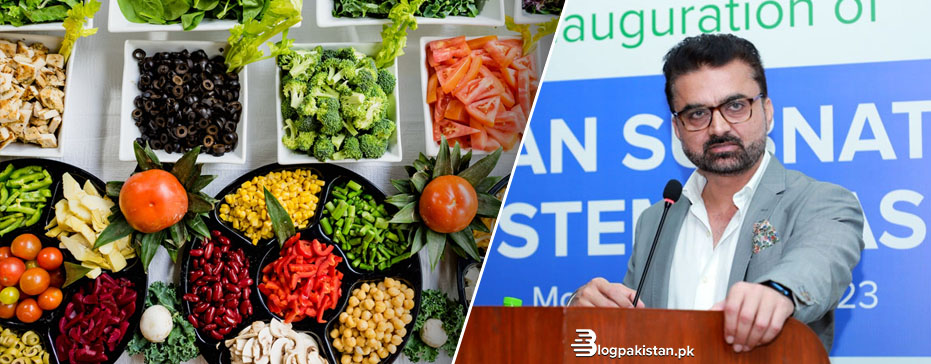The government of Pakistan, in partnership with the Global Alliance for Improved Nutrition, has introduced the ‘Pakistan Subnational Food Systems Dashboard.’ This initiative aims to revamp Pakistan’s food systems in response to pressing food security challenges.
An inaugural ceremony took place in Islamabad, co-hosted by the Pakistan Agricultural Research Council (PARC), the Ministry of National Food Security and Research, and the Global Alliance for Improved Nutrition.
Captain (Retd) Muhammad Mahmood, the Federal Secretary of the Ministry of National Food Security & Research, inaugurated the event at the Food Systems Secretariat, now home to the Pakistan Subnational Food Systems Dashboard (PSFSD).
This event underscored the government’s strong commitment to bolstering the transformation of Pakistan’s food systems.
The ‘Pakistan Subnational Food Systems Dashboard’ is a collaborative effort between Pakistan and the Global Alliance for Improved Nutrition (GAIN).
It builds upon the global Food Systems Dashboard, developed through partnerships with GAIN, FAO, Johns Hopkins University, and the Columbia Climate School at Columbia University.
What Does the Food Systems Dashboard Aim to Achieve?
The Food Systems Dashboard serves as a tool to monitor progress and ensure accountability in implementing action plans that facilitate the transformation of food systems.
It aids policymakers in fortifying the country’s policy landscape, ultimately benefiting individuals vulnerable to hunger, malnutrition, economic fluctuations, climate-related challenges, and environmental degradation.
Overcoming Food Crises Post 2022 Floods
Pakistan has grappled with a severe food crisis, exacerbated by unprecedented flash floods in 2022. UN Secretary-General Antonio Guterres described these floods as “climate carnage,” affecting 33 million people, resulting in over 1,600 casualties, and injuring 12,800 individuals.
These floods inflicted extensive damage on millions of acres of farmland and crops, severely impacting livestock, a vital source of income for much of the population.
Consequently, Pakistan faces a shortage of essential food items, causing prices to soar and triggering widespread food insecurity, hunger, and malnutrition.
To address this crisis and work towards its Zero Hunger goal, Pakistan must implement proactive policies to enhance both the quality and quantity of crops.
Initiatives like the Food Systems Dashboard offer hope in combatting the escalating food crises, ensuring that every citizen can access the most fundamental necessity of life: food.















